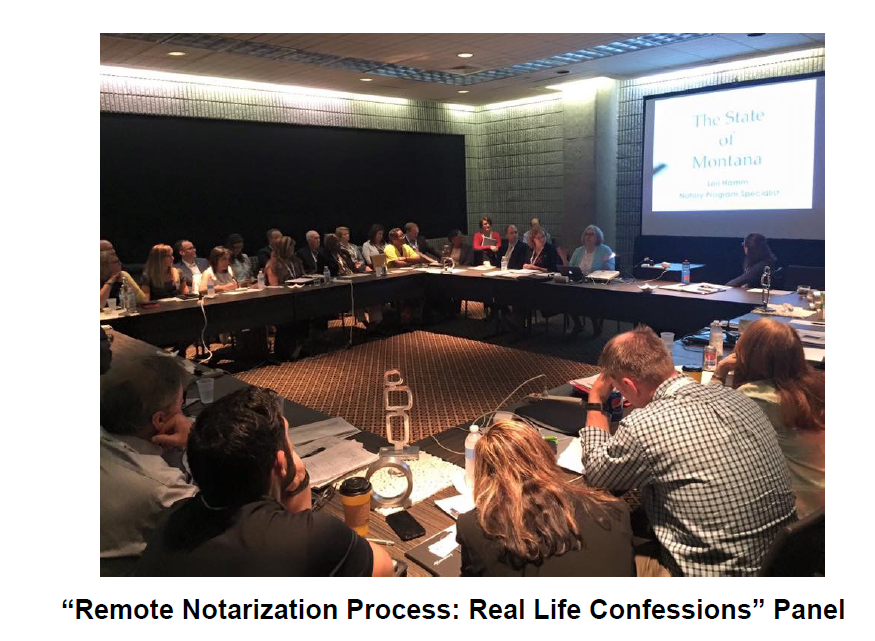“Remote Online Notarization Process: Real Life Confessions” Panel (2016)

In July of 2016 I had the pleasure of being a guest Electronic Notary, or RON as we are called today, at the National Association of Secretaries of State (NASS) summer conference in Nashville. I sat on a panel called the “Remote Notarization Process: Real Life Confessions” along with Virginia’s Secretary of the Commonwealth Kelly Thomassan, Pat Kinsel Founder and CEO of Notarize, Adam Pase co-founder and COO of Notarize, Montana’s Secretary of State, NNA’s Vice President Bill Anderson and some other known people in the industry.
I, along with another VA RON, who also works on the Notarize platform were asked questions about our experience as RONs and the remote notarization process. Most of the questions were about identity verification, duress and how do you know if a person is not being coerced and fraud.
Fraud– just like in traditional notary work, a notary has the right to decline a notarization if they are suspicious or uneasy about a situation. The same rules apply, the same judgment applies in the remote world. You are not skipping any steps in the notarization process just because it is done remotely via webcam. If you think someone is under duress, ask them to move the camera around or give you a tour of their home (they may be willing to do it). You also have the audio/video recording from the notarization session so if someone is committing fraud then you have them on camera. Plain and simple. You can also ask the signer questions like:
“Are you signing this document on your own free will?”
“Do you know and understand what you are signing?”
As an observant notary using good judgement, you should be able to discern a bad situation and immediately terminate the notary session. Using your best judgement should be done whether you work for a platform as a 1099 contractor or performing as an independent RON. The notary (traditional and electronic) is ultimately responsible for the use of their commission and upholding the law at all times off and online.
